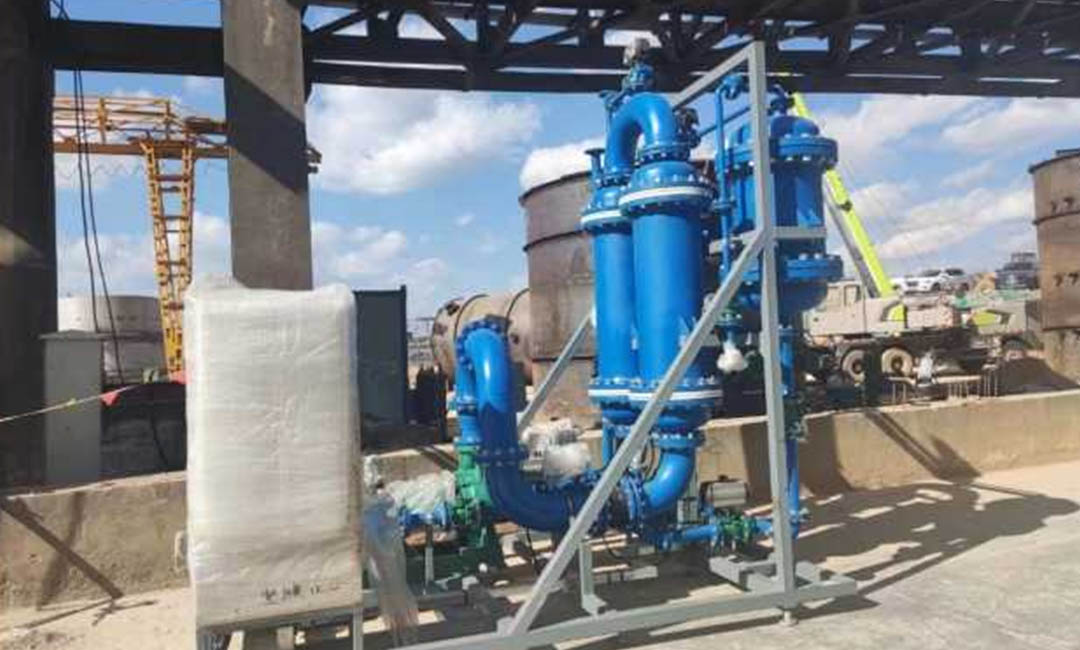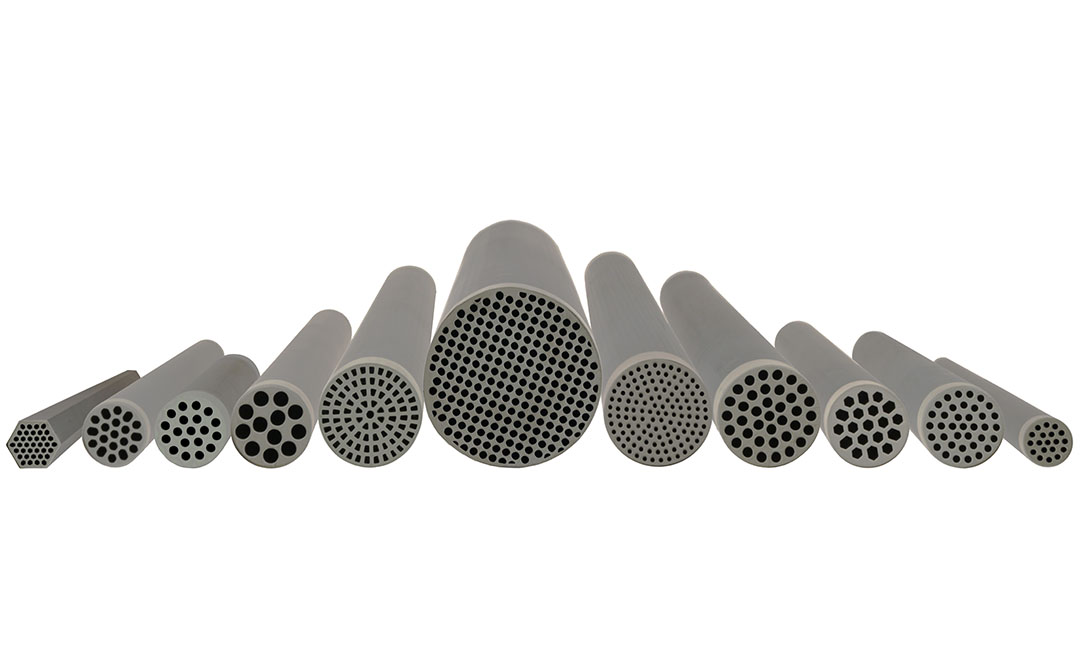Enhanced Filtration Efficiency
Ceramic filtration membranes have become increasingly popular in industrial applications due to their superior filtration efficiency and durability. These membranes are made from inorganic materials such as alumina, zirconia, or titania, which provide excellent chemical and thermal stability. This makes them ideal for use in harsh industrial environments where traditional polymeric membranes may degrade or fail.
One of the key advantages of ceramic filtration membranes is their enhanced filtration efficiency. The unique structure of these membranes allows for precise control over pore size and distribution, resulting in a more uniform and consistent filtration process. This leads to higher flux rates and improved separation efficiency, making ceramic membranes ideal for applications where high purity and yield are critical.
In addition to their superior filtration performance, ceramic membranes also offer long-term stability and resistance to fouling. The rigid structure of ceramic materials prevents deformation and collapse under pressure, ensuring consistent performance over time. This durability makes ceramic membranes a cost-effective solution for industrial processes that require continuous operation and minimal maintenance.
Furthermore, ceramic membranes are highly resistant to chemical and thermal degradation, making them suitable for a wide range of applications in industries such as pharmaceuticals, food and beverage, and wastewater treatment. Their inert nature allows for compatibility with a variety of aggressive chemicals and high-temperature processes, making them versatile and reliable for demanding industrial applications.
Another advantage of ceramic filtration membranes is their ability to be easily cleaned and regenerated. Unlike polymeric membranes that may require harsh chemicals or frequent replacement, ceramic membranes can be cleaned using simple procedures such as backwashing or chemical cleaning. This not only reduces maintenance costs but also extends the lifespan of the membranes, resulting in long-term savings for industrial operations.
Overall, the superior filtration efficiency, durability, and resistance to fouling make ceramic membranes the preferred choice for industrial applications where high performance and reliability are essential. Their ability to withstand harsh conditions and provide consistent results make them a valuable asset for industries looking to improve their filtration processes and optimize their operations.

In conclusion, ceramic filtration membranes offer a range of benefits that make them highly desirable for industrial use. Their enhanced filtration efficiency, durability, resistance to fouling, and ease of cleaning make them a cost-effective and reliable solution for a variety of applications. As industries continue to seek more efficient and sustainable filtration technologies, ceramic membranes are likely to play an increasingly important role in meeting these demands.
Chemical and Thermal Stability
Ceramic filtration membranes are becoming increasingly popular for industrial use due to their superior chemical and thermal stability. These membranes are made from inorganic materials such as alumina, zirconia, or titania, which make them highly resistant to harsh chemicals and extreme temperatures. This durability allows ceramic membranes to be used in a wide range of industrial applications where other types of membranes may fail.
One of the key advantages of ceramic filtration membranes is their resistance to chemical degradation. Unlike organic membranes, which can be damaged by exposure to acids, bases, or organic solvents, ceramic membranes are able to withstand a wide range of chemical environments without losing their filtration efficiency. This makes them ideal for industries such as pharmaceuticals, petrochemicals, and food and beverage production, where the filtration of corrosive or reactive substances is common.
In addition to their chemical stability, ceramic membranes also exhibit excellent thermal stability. They can operate at temperatures well above 100°C without losing their structural integrity or filtration performance. This makes them suitable for applications such as hot gas filtration, wastewater treatment at high temperatures, and the separation of heat-sensitive compounds. The ability of ceramic membranes to maintain their performance under extreme heat conditions sets them apart from other types of membranes that may degrade or deform at high temperatures.
Furthermore, ceramic filtration membranes are known for their long lifespan and low maintenance requirements. Their robust construction and resistance to fouling and fouling make them highly durable and easy to clean, resulting in lower operating costs and reduced downtime for maintenance. This makes ceramic membranes a cost-effective solution for industrial processes that require continuous and reliable filtration.
Another advantage of ceramic filtration membranes is their ability to achieve high filtration efficiency and selectivity. The unique structure of ceramic membranes, with their narrow pore size distribution and uniform pore structure, allows for precise control over the size and shape of particles that can pass through the membrane. This results in a high level of separation efficiency, with the ability to remove particles as small as a few nanometers in size. This level of precision makes ceramic membranes ideal for applications that require the separation of fine particles or the removal of contaminants at the molecular level.
In conclusion, ceramic filtration membranes are preferred for industrial use due to their superior chemical and thermal stability. Their resistance to harsh chemicals and extreme temperatures, combined with their long lifespan, low maintenance requirements, and high filtration efficiency, make them an ideal choice for a wide range of industrial applications. Whether it is in the pharmaceutical, petrochemical, or food and beverage industry, ceramic membranes offer a reliable and cost-effective solution for the filtration of liquids and gases. With their proven performance and durability, ceramic membranes are sure to continue to be a preferred choice for industrial filtration in the years to come.
Longevity and Durability
Ceramic filtration membranes have become increasingly popular in industrial applications due to their longevity and durability. These membranes are made from inorganic materials such as alumina, zirconia, or titania, which make them highly resistant to harsh chemicals and high temperatures. This makes them ideal for use in industries such as wastewater treatment, pharmaceuticals, food and beverage, and many others where the filtration process is critical for the production process.
One of the key advantages of ceramic filtration membranes is their longevity. Unlike other types of membranes that may degrade over time, ceramic membranes can last for several years with proper maintenance. This is because ceramic materials are inherently stable and do not break down easily, even when exposed to aggressive chemicals or extreme temperatures. This means that industries can rely on ceramic membranes to provide consistent and reliable filtration performance over an extended period, reducing the need for frequent replacements and maintenance.
In addition to their longevity, ceramic filtration membranes are also highly durable. They can withstand high pressures and flow rates without compromising their filtration efficiency. This is crucial in industrial applications where the filtration process needs to be efficient and reliable to ensure the quality of the final product. Ceramic membranes can also be easily cleaned and sanitized, making them suitable for use in industries where hygiene is a top priority.
Furthermore, ceramic filtration membranes are resistant to fouling, which is a common issue in membrane filtration systems. Fouling occurs when particles or contaminants accumulate on the surface of the membrane, reducing its effectiveness and requiring frequent cleaning or replacement. Ceramic membranes have a smooth and non-porous surface that prevents particles from adhering to it, making them less prone to fouling compared to other types of membranes. This not only improves the efficiency of the filtration process but also reduces maintenance costs and downtime.
Another advantage of ceramic filtration membranes is their versatility. They can be customized to meet specific filtration requirements, such as pore size, surface area, and flow rate. This allows industries to tailor the membrane to their unique needs and optimize the filtration process for maximum efficiency. Ceramic membranes can also be easily integrated into existing filtration systems, making them a cost-effective solution for industries looking to upgrade their filtration technology.
In conclusion, ceramic filtration membranes are preferred for industrial use due to their longevity and durability. These membranes offer a reliable and efficient filtration solution that can withstand harsh conditions and provide consistent performance over an extended period. With their resistance to fouling, ease of cleaning, and versatility, ceramic membranes are an ideal choice for industries looking to improve their filtration processes and ensure the quality of their products. As technology continues to advance, ceramic filtration membranes are likely to play an increasingly important role in industrial applications where reliable and efficient filtration is essential.


